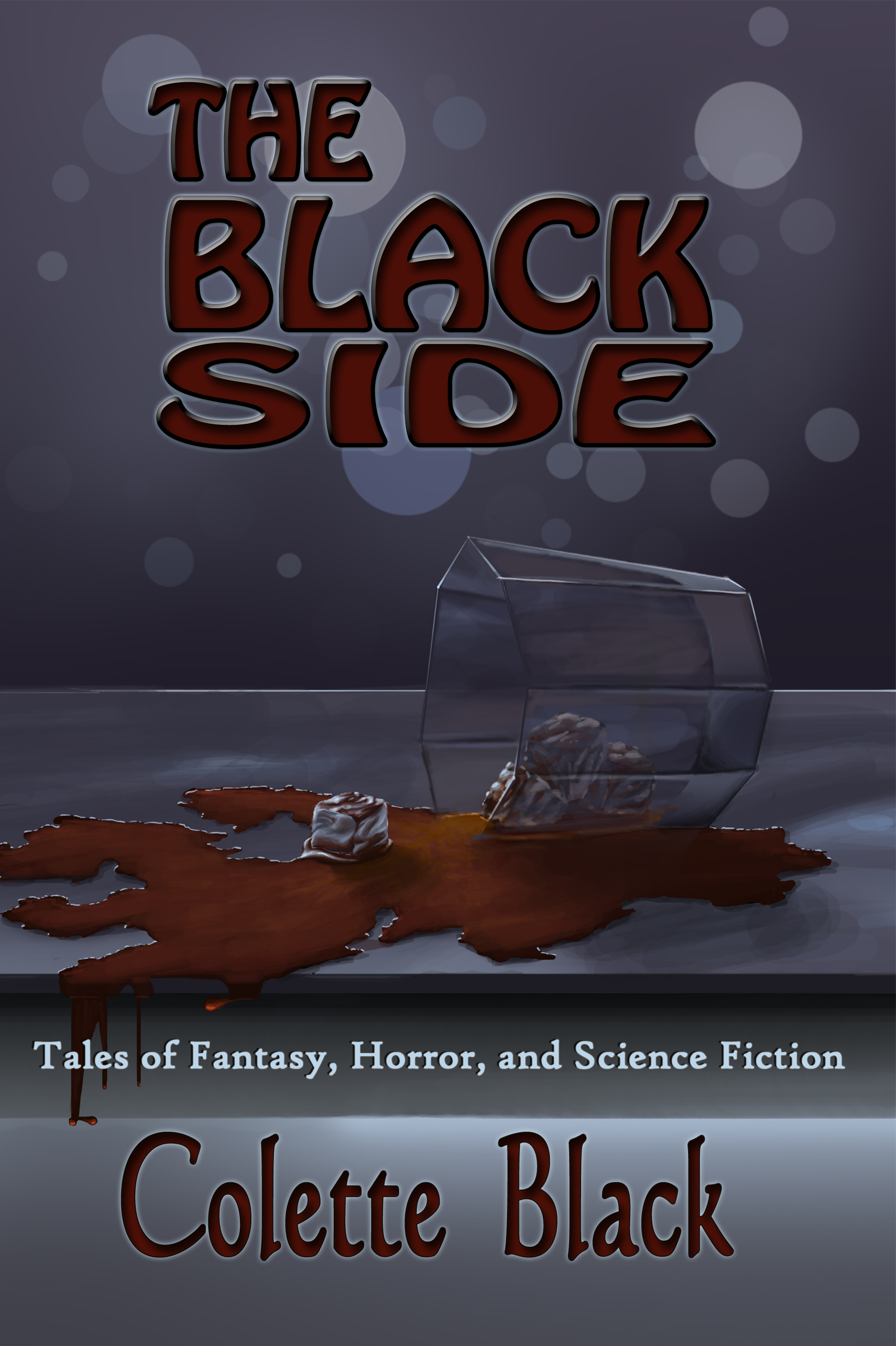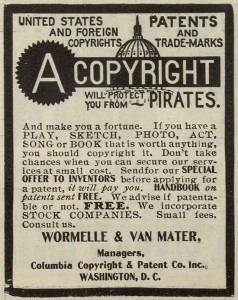A guest post by Scott Boone.
In Nancy DiMauro’s excellent post on reversion clauses from a week or so back, she mentioned the four critical clauses in your book contract: the granting clause, the payment clause, the indemnification clause and the reversion clause. This is the fifth critical clause with which you need to be extremely careful. Nancy knows all about option-type clauses, but she was nice enough not to steal the thunder from my post today.
Option-type clauses are the clauses in your publishing contract that refer not to the work being published, but to the work or works you create after the one being sold in that contract. Essentially, what rights does the publisher have in your next work or works? I’m going to talk about three main types: options, rights of first refusal, and rights of last refusal.
Publishers believe that they will not make any money off your first book. That is the received conventional wisdom. So in publishing you, they are investing in you as an author as much as or more than they are investing in that particular book. If they are going to take that risk and make that investment, they have a legitimate reason for wanting some sort of rights in the works you create after that first book. However, too often, these clauses put all the risk on the author without any risk on the publisher.
There is a question of how enforceable these types of clauses are in court. One that is unlimited in time and scope might stand a good chance of not being enforceable. The more limited in terms of time and scope, the more likely it is to be enforceable. However, you don’t want to put your eggs in that basket. None of them. If you end up in court fighting one of these, then in the big picture you’ve pretty much lost even if the court finds in your favor. Get it right on the front end during the contract negotiation.
So here are the three main types and how you need to think about with each one.
Options
Option clauses give the publisher the right to purchase a later work at already set terms. They do not give the publisher the right to look at them first and make the first offer; instead, the publisher just has the right to purchase your next work on already specified terms. You’ve already agreed to it by giving them an option.
In their worst (and perhaps too common) incarnation, they specify that the publisher has the right to buy your next work on the same terms as the first. This is bad for you for at least two reasons. First, it means you cannot get any better terms, including royalty rates and advances, in your next contract. Remember that with a true option clause, the publisher can exercise it without any need to negotiate with you on terms. Those are already set. Second, if the option clause states that they can purchase the next work on the same terms as the first, those same terms include the option clause. The option propagates forward with each book, with no escape for the author. This can be incredibly insidious, and if you dig deeply enough, you can find horror stories of new authors stuck in these sorts of traps.
Look, it is not uncommon for a new author to get a relatively bad contract as their first contract. But an option clause that locks in future terms means that every contract after that will be a bad contract. Avoid these at all costs.
To make it clear, let’s look at them from another angle. An option clause obligates you but not the publisher. Therefore, you bear all of the risk and the publisher bears none. Let’s say your first book bombs. The publisher is not obligated by an option clause to buy your second book. On the other hand, if your first book is a big success, the publisher can buy the second book without having to give better terms. That’s a risk you bear. So you bear that risk while the publisher bears none.
If a publisher wants to lock in the right to your next work or works at set terms, then make them buy them with a multi-book contract. That way both parties bear some risk and it’s not all on you the author.
So what do you do if the contract you’re offered has an option clause? First, get rid of it. Get them to switch it to a right of first refusal or get them to make it a multi-book contract (if you are happy with the terms). If you can’t get rid of it, then either walk away or try to get the terms for the second work that are much better than the first and make sure an option clause will not be included in the contract for second work.
Further, make sure the clause is more limited than simply “your next work” or “future work.” That would include short stories, books in different series or even in different genres. If you are going to sign one, make sure it is limited to a certain form (long vs. short) and to that genre (or even better that series).
Finally, as with any clause conditioned upon the publisher doing anything, make sure the publisher has an objectively defined timeframe in which to exercise the right before losing that right.
The final word on options: Be very wary. Don’t even think of signing a contract with one unless the terms are good, do not include another option, and improve with the next work.
Right of Last Refusal
The right of last refusal is a clause that gives the publisher the right to match any offer for your future work made by another publisher. It’s a bit deceptive in how bad these are for the author. On first glance, they might seem to be not as bad as a straight option clause, but once we dig into how they work, we’ll see how they can actually be worse.
The right to last refusal basically gives the publisher the right to match any other offer. That means they have the right to buy the book at terms that match the other publisher’s terms.
They don’t seem too bad until you start to think about what such clauses do to your ability to get another offer. Put yourself in the shoes of the editor at the other publishing house. In order to make an offer to buy a book, you have to put in a lot of work. You have to read and evaluate the book. Then you have to champion that book to several other constituencies in house. Are you going to want to invest in that book, both in terms of time and workplace capital, if the first publisher can snipe the book out from under you for the same terms? Not likely.
So, while it appears that a last refusal clause gives you the ability to improve the terms of the next contract by getting a better offer somewhere else, that’s not a very realistic option.
Additionally, because the original publisher does not have to make a yes or no decision as they do with an option clause, you might actually get worse terms in the second contract. An option clause at least locks terms in. If your ability to go anywhere else is blocked because no other editor wants to invest the time to make an offer on a book subject to a last refusal, the original publisher can actually offer you worse terms because they know you don’t have any other options.
The final word on rights of last refusal: Don’t.
Right of First Refusal
The right of first refusal gives the publisher the right to be the first publisher to see your next work and the right to make the first offer on it. Unlike the option clause, the publisher cannot unilaterally purchase your next work. You have to agree to their terms. That’s not a bad deal for you as an author provided the right is limited.
You want a good and prosperous relationship with your publisher that spans multiple books. One in which both of you do well. And if you are writing a series, you really don’t want to switch publishers mid-series.
While the presence of this clause should not cause you to reconsider the contract, you should seek to limit it in at least two ways.
First, you should limit what works it covers. It should specify novels and not short works, unless your publisher does in fact publish short works and on terms you would like. It should also be limited to that specific series, or if you can’t negotiate for limiting it to that series, it should be limited to books in that particular genre.
Second, you should limit how much time the publisher has to respond once you have submitted the new work to them. The traditional publishing process is incredibly slow as it is. You don’t want it slowed down even further.
The final word on first rights of refusal: Fine if properly limited.
The Takeaway
Work to limit a right of first refusal in scope to a particular series or genre and in the amount of time the publisher has to make the offer. Avoid options and rights of last refusal.
M. Scott Boone lives in Atlanta, Georgia, where he works as a law professor in order to support a clowder of cats. He writes about legal issues affecting writers at writerinlaw.com. When not writing or teaching, he is a self-proclaimed soccervangelist.



